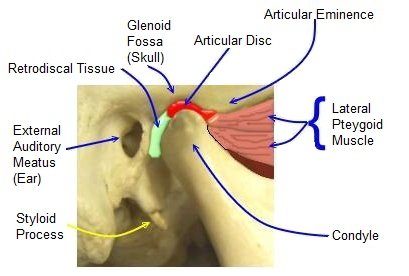What is Mandibular Dislocation?
Mandibular dislocation is a condition in which the lower jaw is locked in an open mouth position (“open lock”). It occurs when the condyles become located anterior to the articular eminence.

What Causes Mandibular Dislocation?
Mandibular dislocation can occur from:
- Trauma
- Pre-existing natural looseness of the TMJ capsule
- Certain connective tissue syndromes
- Yawning
- Seizures
- Prolonged wide opening of the mouth during dental, oral and pharyngeal procedures
When the condyles are in this unnatural anterior location, spasm in the temporalis muscles generally prevents their return to the articular fossa.
Acute dislocation is treated by manual reduction using sedation or local or general anesthesia to relieve the muscular spasm. If the TMJ capsule was normal prior to the incident, limiting jaw function for a short period should allow healing and repair to occur without further incidents. However, in cases where there is pre-existing capsular looseness, patients may have repeated episodes and require further treatment.
How is Chronic Recurrent Mandibular Dislocation Treated?
There have been numerous treatments proposed for the management of chronic recurrent mandibular dislocation. These have involved non-surgical and surgical options. Non-surgical treatment involves injection of a sclerosing (fibrosis-producing) solution or the patient’s blood into the joint to cause scarring and tightening of the loose capsule. Surgical treatments involve tightening of the capsule by removing redundant tissue (i.e., capsulorrhaphy), creating mechanical interferences in the condylar path to limit anterior condylar movement, or removal of the articular eminence (i.e., eminectomy) to allow free anterior-posterior movement. Since the latter two types of procedures generally also involve entrance through the joint capsule, capsulorrhaphy is the common factor and therefore the operation of choice.
We are grateful to Dr. Daniel Laskin, Adjunct Clinical Professor and Chairman Emeritus at Virginia Commonwealth University School of Dentistry, Oral and Maxillofacial Surgery, for his many years as our clinical advisor and for writing the content in this section.
